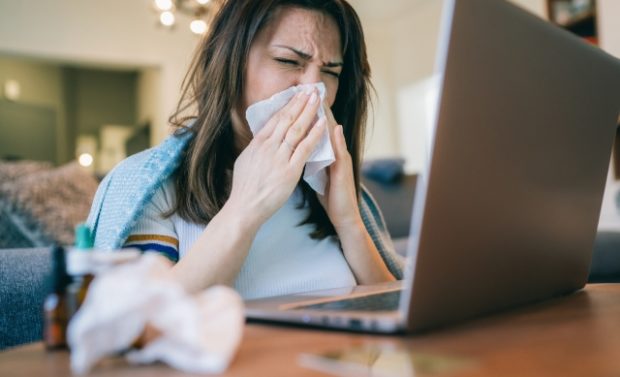Online symptom checkers often give wrong information when diagnosing illnesses, says study

Free online symptom checkers that claim to diagnose illnesses are not often correct, according to new research. Image: IStock.com/filadendron via AFP Relaxnews
New Australian research has found that if you’re using Google to self-diagnose your illness, you’re more than likely getting the wrong advice, as online symptom checkers are only accurate around a third of the time.
Carried out by researchers at Edith Cowan University (ECU), the new study analyzed the accuracy of 36 international free symptom checkers, which were found using five popular search engines — Google, Yahoo, Ask, Search Encrypt and Bing — and through Google Play (Android) and App Store (Apple).
To test the symptom checkers, the researchers used 48 medical conditions and had the “correct” diagnoses confirmed by two general practitioners and an emergency department specialist.
The findings, published in the Medical Journal of Australia, showed that the symptom checkers gave the correct diagnosis as the first result just 36% of the time, and the correct diagnosis within the top three results 52% of the time. The advice given on when and where to seek health care was accurate 49% of the time.
“While it may be tempting to use these tools to find out what may be causing your symptoms, most of the time they are unreliable at best and can be dangerous at worst,” said lead author Michella Hill.
“We’ve all been guilty of being ‘cyberchondriacs’ and googling at the first sign of a niggle or headache,” she continued.
“But the reality is these websites and apps should be viewed very cautiously as they do not look at the whole picture — they don’t know your medical history or other symptoms.”
“For people who lack health knowledge, they may think the advice they’re given is accurate or that their condition is not serious when it may be.”
The researchers point out that estimates have suggested that around 70,000 health-related searches are typed into Google every minute, and nearly 40% of Australians search for health information online to self-diagnose and self-treat. Although the quality of diagnostic advice varies between sites, they can be a useful tool in some cases, admitted Hill.
“These sites are not a replacement for going to the doctor, but they can be useful in providing more information once you do have an official diagnosis,” she said.
“We’re also seeing symptom checkers being used to good effect with the current COVID-19 pandemic. For example, the UK’s National Health Service is using these tools to monitor symptoms and potential ‘hotspot’ locations for this disease on a national basis.” RGA
RELATED STORIES:
Nurse fakes COVID-19 symptoms to get tested; results come back positive